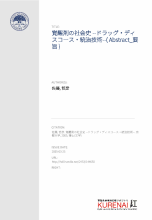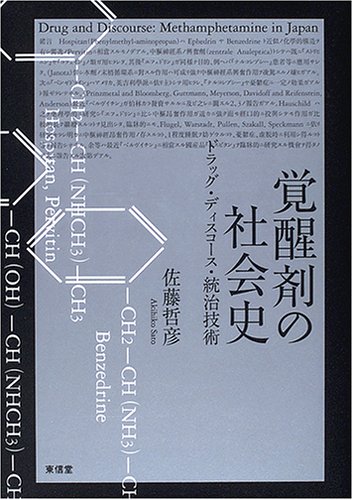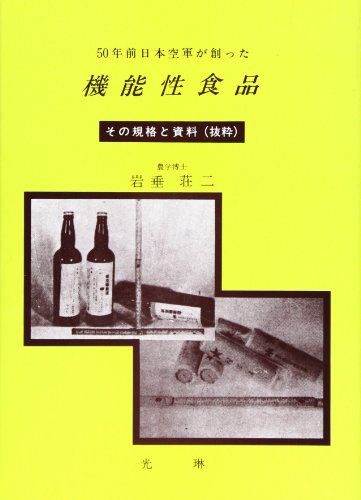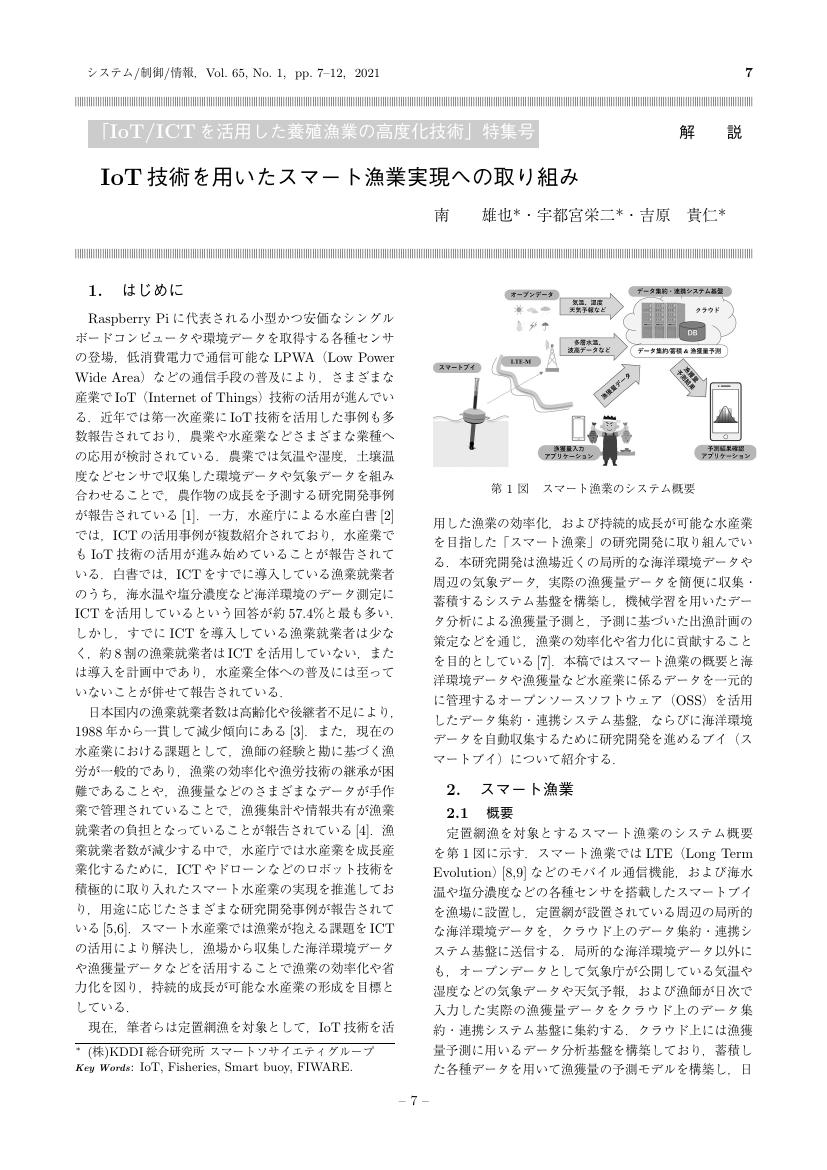2 0 0 0 OA メディアと読み書きの認知科学
- 著者
- 柴田 博仁
- 出版者
- 一般社団法人 日本画像学会
- 雑誌
- 日本画像学会誌 (ISSN:13444425)
- 巻号頁・発行日
- vol.59, no.2, pp.204-211, 2020-04-10 (Released:2020-04-10)
- 参考文献数
- 40
本稿は読み書きでの紙と電子メディアの比較研究からわかったことを概観し,読み書きを支援するデジタル環境の構築に向けた示唆を示すものである.これまでの研究から,電子機器での読みが紙での読みに及ばない点は,「見やすさ」よりも「扱いやすさ」に起因するところが大きいことがわかってきた.また,キーボード入力は認知負荷が高く,電子的な描画ツールはデザイン問題の解決よりも描画結果の整形に走りがちであることが指摘されている.電子メディアのこうした問題点を克服するため,(1)見やすさよりも扱いやすさを追究すべきこと,(2)読み書き中の行為を認知負荷低くできるようにすること,(3)誤った思考モードを導かないようにすること,を設計示唆としてまとめる.
2 0 0 0 OA 弟子の条件 : ルカ14:25-35の釈義的研究
- 著者
- 嶺重 淑 Kiyoshi Mineshige
- 雑誌
- 関西学院大学キリスト教と文化研究 = Kwansei Gakuin University journal of studies on Christianity and culture (ISSN:13454382)
- 巻号頁・発行日
- no.21, pp.13-29, 2020-03-31
2 0 0 0 IR 覚醒剤の社会史 : ドラッグ・ディスコース・統治技術
2 0 0 0 覚醒剤の社会史 : ドラッグ・ディスコース・統治技術
2 0 0 0 50年前日本空軍が創った機能性食品 : その規格と資料「抜粋」
2 0 0 0 OA 覚醒剤の社会史 --ドラッグ・ディスコース・統治技術--
- 著者
- 佐藤 哲彦
- 出版者
- 京都大学 (Kyoto University)
- 巻号頁・発行日
- 2005-03-23
新制・論文博士
2 0 0 0 現代の社会病理
- 著者
- 日本社会病理学会 編 = Journal of social problems / Japanese Association of Social Problems
- 出版者
- 日本社会病理学会
- 巻号頁・発行日
- vol.(23);2008, 2008-09
- 著者
- 松永 敦夫 石川 浩
- 出版者
- 一般社団法人 情報科学技術協会
- 雑誌
- 情報の科学と技術 (ISSN:09133801)
- 巻号頁・発行日
- vol.64, no.7, pp.265-270, 2014-07-01 (Released:2017-04-13)
今日,主要国特許庁から特許公報の全文がデータベースとして提供されている。このデータベースを自らサーチし,また必要に応じ審査経過情報にもアクセスして,誰もが関連する特許情報を取得することが可能になっている。特許情報の科学技術情報としての利用促進は,特許制度の要である。しかしながら,特許明細書は,出願人が特定の意図をもって技術情報を開示するものであり,また,玉石混交であることから,その利用には注意を要する。特許情報の利用者は,特許制度を良く知り,また技術分野毎の戦略のパターンを知って,特許情報を評価することが重要である。小論では医薬品に関する特許情報の評価や利用例を中心に紹介する。
2 0 0 0 OA IoT技術を用いたスマート漁業実現への取り組み
- 著者
- 南 雄也 宇都宮 栄二 吉原 貴仁
- 出版者
- 一般社団法人 システム制御情報学会
- 雑誌
- システム/制御/情報 (ISSN:09161600)
- 巻号頁・発行日
- vol.65, no.1, pp.7-12, 2021-01-15 (Released:2021-07-15)
- 参考文献数
- 15
- 著者
- 大川内 浩子 上野 大輔 宮崎 亘 亀崎 直樹
- 出版者
- 鹿児島県自然愛護協会
- 雑誌
- Nature of Kagoshima : an annual magazine for naturalists (ISSN:18827551)
- 巻号頁・発行日
- vol.39, pp.75-79, 2013
Specimens of a species of the genus Temnosewellia Damborenea and Cannon (Temnocephalida: Temnocephalidae) were collected from the exoskeleton of two species of freshwater crabs, Geothelphusa exigua Suzuki and Tsuda (Decapoda: Potamidae) and Eriocheir japonica (De Haan) (Decapoda: Varunidae) in the head waters and upper streams of some rivers in the Ohsumi Peninsula, Kagoshima Prefecture, southern Japan. Individuals of this temnocephalid were found to transfer from G. exigua to E. japonica in an experimental tank.
- 著者
- Takehiro Kazama Seiji Ishida Satoshi Shimano Jotaro Urabe
- 出版者
- The Plankton Society of Japan, The Japanese Association of Benthology
- 雑誌
- Plankton and Benthos Research (ISSN:18808247)
- 巻号頁・発行日
- vol.7, no.3, pp.111-125, 2012-08-25 (Released:2013-06-18)
- 参考文献数
- 57
- 被引用文献数
- 7 6
Tintinnid ciliates have been traditionally classified according to morphological and morphometric features of the lorica. To examine if the morphological characteristics of loricae reflect the phylogenetic relationships, we collected 23 tintinnid morphospecies (11 genera) and reconstructed phylogenetic trees based on 84 partial sequences of nuclear small subunit rRNA (SSrRNA) gene fragments of 44 morphospecies from a total of eight families (55 sequences from this study, and 29 sequences from the literature). We found that tintinnid ciliates could be classified into six clades consisting of five major clades. While one clade consisted of one family, each of the other five clades consisted of more than two families. Although two families were found only in one clade, the remaining six families were found in more than two clades. In addition, each of six morphospecies was found in more than two major clades, indicating that they are polyphyletic. Principal coordinate analysis showed that morphology of the lorica overlapped substantially between the clades. These results imply that most of the morphological and morphometric traits of marine tintinnid species do not reflect SSrRNA genetic distances even at family levels. It is necessary to identify new characteristics that reflect phylogenetic relationships robustly.
2 0 0 0 OA 昆虫とふれあうこと
- 著者
- サイエンスウィンドウ編集部
- 出版者
- 国立研究開発法人 科学技術振興機構
- 雑誌
- サイエンスウィンドウ (ISSN:18817807)
- 巻号頁・発行日
- vol.1, no.4, pp.1-28, 2007-07-01 (Released:2019-04-12)
サイエンスウィンドウ2007 7月号の冊子体一式(PDF版)およびHTML版は下記のURLで閲覧できます。 https://sciencewindow.jst.go.jp/backnumbers/detail/44 目次 【特集】 昆虫とふれあうこと p.06 書を捨てよ 野山へ出よう p.08 昆虫観察はおもしろい p.10 あなたのすぐ近くにある昆虫ワンダーランド p.12 ヤママユの飼育を通していのちを見つめる p.14 自然を愛でる心を育む俳句づくり p.15 こんなところでも昆虫とふれあえる 【連載】 p.02 似姿違質:ハス VS スイレン p.16 エッセイ 風の譜:蟻の反撃 p.17 再発見! ZOO:仲間たちと一緒に暮らすアジアゾウ p.18 科学教育Now!:小学校に理科支援員がやって来た p.20 ヨッシーのお米一話:田んぼに生きる仲間たち p.21 とっておきの一冊:「ぞうむしくんがんばる」 p.22 イチから伝授 実験法:ムラサキキャベツでカラフル色水遊び p.24 発見! 暮らしのなかの科学:水道の水 どこでつくられ どこへ行く p.26 せんせいクラブ p.28 シリーズ 窓:国営昭和記念公園
- 著者
- 川村 光
- 出版者
- 日本教育社会学会
- 雑誌
- 教育社会学研究 (ISSN:03873145)
- 巻号頁・発行日
- vol.85, pp.5-25, 2009-11-30 (Released:2015-06-03)
- 参考文献数
- 25
Under the educational system, teachers are given the authority to control and instruct their pupils. However, this authority began to weaken in the beginning of the 1970s as problems involving education, such as deviant behavior and management-oriented educational practices, were socially questioned. In the 1970s and 1980s, junior high school teachers in particular were called upon to rethink their identities as teachers because they faced crises involving deviant behavior among their students, and found it difficult to teach their subjects.This study examines the teachersʼ culture of authority, based on the life histories of two male junior high school teachers who encountered crises and the collapse of their authority during the 1970s and 1980s. At present, both are school principals. One of the two was born in 1946 and taught physical education to pupils in two schools during the period in question. The other, a science teacher, was born in 1948 and worked at two schools as well.From their life histories, some important findings are drawn.First, both teachers interpreted the crises as positive phenomena. They stated that though crises had a negative influence on them, they also led them to construct a new teacher identity.Second, both believed that teachers should not depend on the authority stemming from the educational system. They tried to gain authority autonomously through communication with their pupils and parents regarding teaching, pastoral care and guidance rather than depending on control over pupils and physical punishment. They believed it was important to construct an image based on authority originating in personal magnetism rather than based on authority related to academic truth and professional knowledge or based on educational system.Caution should be exercised in generalizing these findings as they are based on only two specific life history cases. However, it should be noted that it is possible to gain insights into teachersʼ culture by focusing on the form of their narratives. From this point of view, it is thought that teachersʼ culture is a form of delicate authority and the teachersʼ authority related to personal magnetism is more important than others.Therefore, it is thought that deviant behavior by students as a crisis of school education in the 1970s and 1980s led to a change in the teachersʼ culture from one under which it was more important to keep authority based on the educational system to one where it was more significant to retain authority related to personal magnetism.
- 著者
- Mohd Khairuddin Mohd Safee Wan Abu Bakar Wan Abas Fatimah Ibrahim Noor Azuan Abu Osman Mohd Helmi Rizal Salahuddin
- 出版者
- The Society of Physical Therapy Science
- 雑誌
- Journal of Physical Therapy Science (ISSN:09155287)
- 巻号頁・発行日
- vol.24, no.6, pp.549-552, 2012 (Released:2012-08-22)
- 参考文献数
- 21
- 被引用文献数
- 8 18
[Purpose] This study investigated the activity of the rectus femoris (RF), biceps femoris (BF), tibialis anterior (TA) and gastrocnemius (Gas) muscles of healthy subjects during salat and specific exercises using surface electromyography (EMG). [Methods] A group of undergraduates aged between 19 to 25 years voluntarily participated in this study. For the assessment of the RF muscle, the subjects were asked to perform salat movement [standing to prostration (STP)] and squat exercise (SE) and for the BF, TA and Gas muscles, subjects were asked to perform salat (bowing) and the toe touching exercise (TTE). The electromyograms of the muscles were recorded and analyzed. [Result] The findings indicate that there were contractions of the muscles during the salat and exercises with difference EMG levels. Wilcoxon’s Rank Sum Test found a statistically no significant differences between salat and the specific exercises for RF, BF and Gas. For TA, the test revealed a statistically significant difference between salat and the specific exercise with a difference of 5.67%MVC. [Conclusion] Salat may be useful in warm up or in rehabilitation programs. This pilot study conducted initial research into the biomechanical responses of human muscles in various positions of salat.
- 著者
- Fatimah Ibrahim Siti A. Ahmad Park Jong Woo Wan Abu Bakar Wan Abas
- 出版者
- The Society of Physical Therapy Science
- 雑誌
- Journal of Physical Therapy Science (ISSN:09155287)
- 巻号頁・発行日
- vol.24, no.10, pp.1021-1024, 2012 (Released:2012-12-28)
- 参考文献数
- 22
- 被引用文献数
- 3 7
[Purpose] Salat is the prayer practiced by Muslims and it involves several physical motions, namely standing, bowing and prostrating, which can be considered as a form of slow moderate exercise. The purpose of this research was to investigate the activities of the upper body muscles and the body composition during Salat’s prostration and the child’s pose. [Subjects] Eight healthy male and female university students were recruited for this study. [Methods] The body composition of each subject was first measured. The subjects were then asked to perform Salat’s prostration motion followed by the child’s pose posture. Electromyographic (EMG) signals were recorded from the biceps brachii, triceps brachii, scapula muscle, and pectoralis major muscles. The signals were converted to root mean square values. The Mann-Whitney U non-parametric test was conducted to investigate the significance of differences in EMG mean values and body composition in both postures. [Results] The findings show that all the muscles were activated in both postures with the triceps brachii recording the highest value. For the triceps brachii, the prostration posture gave higher values. However, no significant difference was found in the body composition. [Conclusion] The prostration posture produces musculoskeletal effects similar to the child’s pose.
- 著者
- Hayato TAKEUCHI Yoshinobu TAKAHASHI Seisuke TANIGAWA Takanari OKAMOTO Yoshinori KODAMA Yukiko SHISHIDO-HARA Ema YOSHIOKA Tomoko SHOFUDA Yonehiro KANEMURA Eiichi KONISHI Naoya HASHIMOTO
- 出版者
- The Japan Neurosurgical Society
- 雑誌
- NMC Case Report Journal (ISSN:21884226)
- 巻号頁・発行日
- vol.9, pp.199-208, 2022-12-31 (Released:2022-07-08)
- 参考文献数
- 26
Despite recent signs of progress in diagnostic radiology, it is quite rare that a glioblastoma (GBM) is detected asymptomatically. We describe two patients with asymptomatic nonenhancing GBMs that were not diagnosed with neoplasia at first. The patients had brain scans as medical checkups, and incidentally lesions were detected. In both cases, surgical specimens histopathologically showed no evidence of neoplasia, whereas molecular genetic findings were isocitrate dehydrogenase (IDH) -wildtype, O6-methylguanine-DNA methyltransferase promoter (pMGMT) unmethylated, and telomerase reverse transcriptase (TERT) promoter mutated, which matched to GBM. One patient was observed without adjuvant therapy and the tumor recurred 7 months later. Reoperation was performed, and histopathologically GBM was confirmed with the same molecular diagnosis as the first surgical specimen. Another patient was carefully observed, and chemoradiotherapy was begun 6 months after the operation following the extension of the lesion. Eventually, because of disease progression, both patients deceased. We postulate that in each case, the tumor was not lower-grade glioma but corresponded to the early growth phase of GBM cells. Thus far, cases of malignant transformation from lower-grade glioma or asymptomatic GBM with typical histologic features are reported. Nevertheless, to the best of our knowledge, no such case of nonenhancing, nonhistologically confirmed GBM was reported. We conjecture these cases shed light on the yet unknown natural history of GBM. GBM can take the form of radiological nonenhancing and histological nonneoplastic fashion before typical morphology. Molecular genetic analysis can diagnose atypical preceding GBM, and we recommend early surgical removal and adjuvant treatment.
2 0 0 0 OA 大規模崩壊で形成された飛彈山脈南部蝶ヶ岳東面の圏谷状および堆石堤状の地形
- 著者
- 富田 国良 苅谷 愛彦 佐藤 剛
- 出版者
- 日本第四紀学会
- 雑誌
- 第四紀研究 (ISSN:04182642)
- 巻号頁・発行日
- vol.49, no.1, pp.11-22, 2010-12-01 (Released:2012-03-27)
- 参考文献数
- 38
- 被引用文献数
- 5 8
飛彈山脈南部の蝶ヶ岳(標高2,664 m)の東面には,圏谷状の急斜面と堆石堤状の低丘からなる一連の地形が存在する.これらの地形の成因について,氷河説と崩壊説の2つの対立意見があったが,決着はついていなかった.筆者らは野外地質記載と地形分析に基づき,一連の地形の最終成因を再検討した.堆石堤状の低丘の周辺には,厚さ100 mを超える角礫主体の堆積物が分布する.砂岩・泥岩からなる角礫は著しく破砕・変形しており,堆積物全体が砂~シルト・サイズの基質に支持される.一方,堆積物に流水運搬・堆積を示す構造は認められず,ティルやアウトウオッシュとも異なり,亜角礫や亜円礫はほとんど含まれない.また,一連の地形をとり囲む稜線の上やその下方の谷壁には,岩盤クリープやトップリングの発生を示唆する線状凹地やバルジが発達する.こうした状況から,一連の地形は大規模崩壊で形成されたとみるのが合理的である.残存する崩壊堆積物の総量は約3.2×107 m3に達する.蝶ヶ岳の近傍に存在する活断層・活火山や,当山域に卓越する多雨多雪気候は,崩壊の発生に好適な条件を提供してきたと考えられる.崩壊の誘因と発生時期は未詳である.
- 著者
- 山田 真紀 和井田 節子 藤田 英典
- 出版者
- 一般社団法人 日本教育学会
- 雑誌
- 日本教育学会大會研究発表要項 (ISSN:2433071X)
- 巻号頁・発行日
- vol.80, pp.115-116, 2021-08-16 (Released:2021-10-22)




